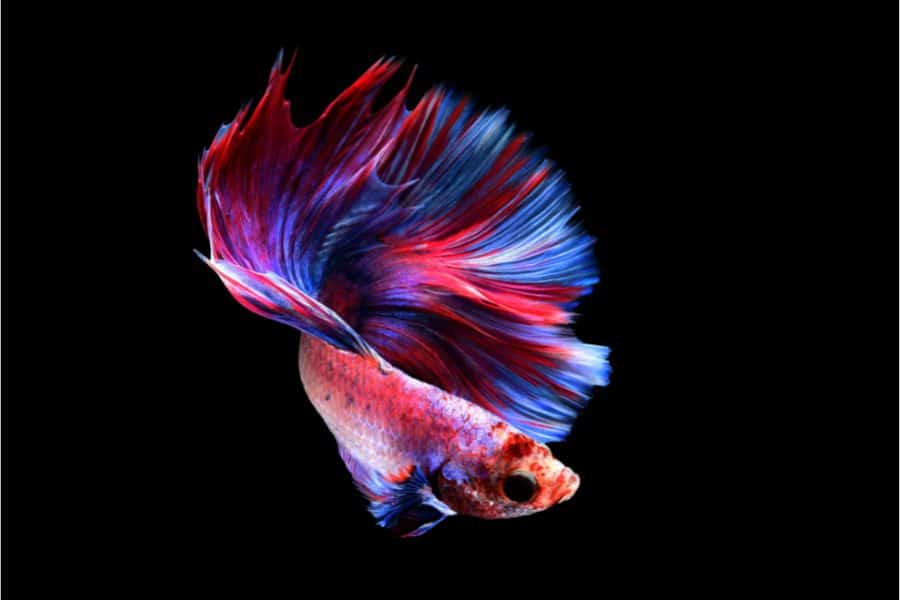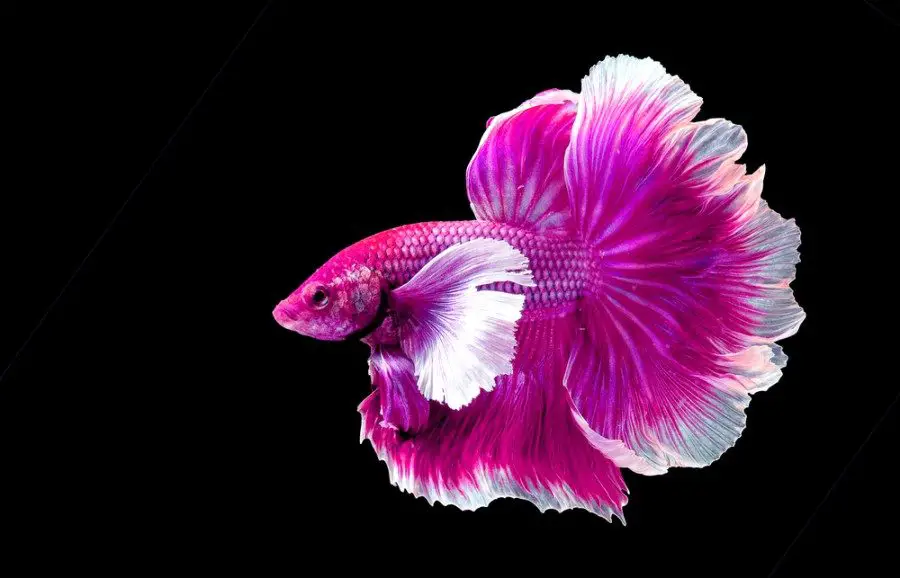Betta fish are one of the most popular pets in the world. Known for their vibrant colors and long, flowing fins, these fish are a great addition to any aquarium. But as a responsible pet owner, you might be wondering if it’s okay to keep your betta fish in the dark.
While it’s true that betta fish can survive in low light conditions, keeping them in complete darkness is not recommended. In this article, we’ll explore the reasons why betta fish need some light, the ideal lighting conditions for them, and how to ensure your betta fish is healthy and happy in its environment.

Can Betta Fish Be in the Dark?
Betta fish, also known as Siamese fighting fish, are popular pets due to their bright colors and unique personalities. However, many individuals are unsure if it’s safe for their betta fish to be in the dark. In this article, we’ll explore whether or not betta fish can be in the dark and what you should know to keep your pet healthy and happy.
Understanding Bettas and Their Needs
Betta fish are native to Thailand and require specific living conditions to thrive. They prefer warm water temperatures between 76-82°F and a pH range between 6.5-7.5. They also need clean water and a tank that’s at least 5 gallons in size. Bettas are known for their aggressive behavior and require plenty of space to swim and hide.
Benefits of Light for Bettas
While bettas may not need light to survive, they do benefit from having a light source in their tank. Light helps regulate their sleep cycle and can promote a healthier appetite. A well-lit tank can also provide a more natural environment for your betta fish, which can reduce stress and keep them happy.
The Risks of Keeping Bettas in the Dark
While bettas are capable of surviving in the dark, it’s not recommended to keep them in complete darkness. Lack of light can disrupt their sleep cycle, leading to a decrease in appetite and a weakened immune system. Additionally, bettas may become stressed or disoriented in a dark environment, which can lead to health issues.
Benefits of a Natural Light Cycle
A natural light cycle can provide many benefits for your betta fish. It can help regulate their sleep cycle, promote healthy eating habits, and reduce stress. Bettas also require a certain amount of light each day to maintain their vibrant coloration. Providing a natural light cycle can help ensure your betta is healthy and happy.
The Importance of a Proper Light Source
When it comes to providing light for your betta fish, it’s important to choose the right type of light. LED lights are a popular choice as they provide a natural-looking light source and are energy-efficient. It’s best to avoid harsh or bright lights, as they can cause stress and disrupt your betta’s sleep cycle.
The Bottom Line
While betta fish can survive in the dark, it’s not recommended to keep them in complete darkness. A natural light cycle can provide many benefits for your betta’s health and happiness. When choosing a light source for your betta’s tank, it’s important to consider their specific needs and choose a light that’s gentle and natural-looking. By providing a proper environment for your betta fish, you can ensure they live a long, healthy life.
Frequently Asked Questions
Here are some frequently asked questions regarding keeping betta fish in the dark.
Can betta fish be in the dark?
Yes, betta fish can be in the dark, but it is not recommended for long periods of time. Betta fish require a regular day and night cycle to maintain their health and well-being. In the wild, they are used to a natural day and night cycle, and in captivity, they need the same. Excessive darkness can cause stress and confusion for betta fish, leading to a weakened immune system and other health concerns.
If you need to turn off the lights in your tank at night, it is recommended to use a small LED light to simulate moonlight. This will allow your betta fish to rest while still maintaining a natural day and night cycle. If you must keep your betta fish in darkness for any reason, it should only be for short periods and with proper monitoring of their behavior and health.
What happens if I keep my betta fish in the dark?
If you keep your betta fish in the dark for an extended period, it can cause stress and confusion, which can weaken their immune system and lead to other health concerns. Betta fish require a regular day and night cycle to maintain their health and well-being. In the wild, they are used to a natural day and night cycle, and in captivity, they need the same.
Excessive darkness can also lead to a lack of appetite and a decrease in activity levels. Your betta fish may become lethargic and more susceptible to diseases and infections. If you need to turn off the lights in your tank at night, it is recommended to use a small LED light to simulate moonlight. This will allow your betta fish to rest while still maintaining a natural day and night cycle
How much light do betta fish need?
Betta fish require a regular day and night cycle to maintain their health and well-being. In general, betta fish need 8-12 hours of light per day. However, this can vary depending on the size of your tank, the type of lighting you use, and the plants and other aquatic life in your tank. It is essential to provide a regular day and night cycle for your betta fish to prevent stress and confusion.
If you need to turn off the lights in your tank at night, it is recommended to use a small LED light to simulate moonlight. This will allow your betta fish to rest while still maintaining a natural day and night cycle.
Can betta fish see in the dark?
Betta fish do not have night vision, but they can see in low light conditions. In the wild, betta fish are used to a natural day and night cycle, and in captivity, they need the same. If you need to turn off the lights in your tank at night, it is recommended to use a small LED light to simulate moonlight. This will allow your betta fish to rest while still maintaining a natural day and night cycle.
It is important to note that some betta fish may be more sensitive to light than others. If you notice your betta fish becoming stressed or lethargic, you may need to adjust the lighting in your tank to provide a more suitable environment for them.
What type of lighting is best for betta fish?
The type of lighting you need for your betta fish depends on the size of your tank, the plants and other aquatic life in your tank, and your personal preference. In general, it is recommended to use a full-spectrum LED light for your betta fish tank. This will provide your betta fish with the necessary light for photosynthesis and a natural day and night cycle.
If you have live plants in your tank, you may need to use a higher intensity light to promote growth. However, it is important not to use too much light as it can cause algae growth and other problems in your tank. If you are unsure about the best lighting for your betta fish tank, consult with a professional or do some research online to find the best option for your specific needs.

Can Betta Fish see in the dark?
In conclusion, betta fish can be in the dark, but it is not recommended to keep them in complete darkness for extended periods. While they are capable of adjusting to low light conditions, they still require some light to maintain their natural circadian rhythm and overall health.
It is important to provide your betta fish with a suitable environment that includes proper lighting and a regular day/night cycle. This can be achieved by providing them with a light source for around 8-10 hours a day and then turning it off at night.
Remember that betta fish are living creatures and deserve to be treated with care and respect. By providing them with a suitable habitat that includes proper lighting, you can ensure that they thrive and live a healthy, happy life. So, if you want to keep your betta fish in the dark, be sure to do it responsibly and with their best interests in mind.
